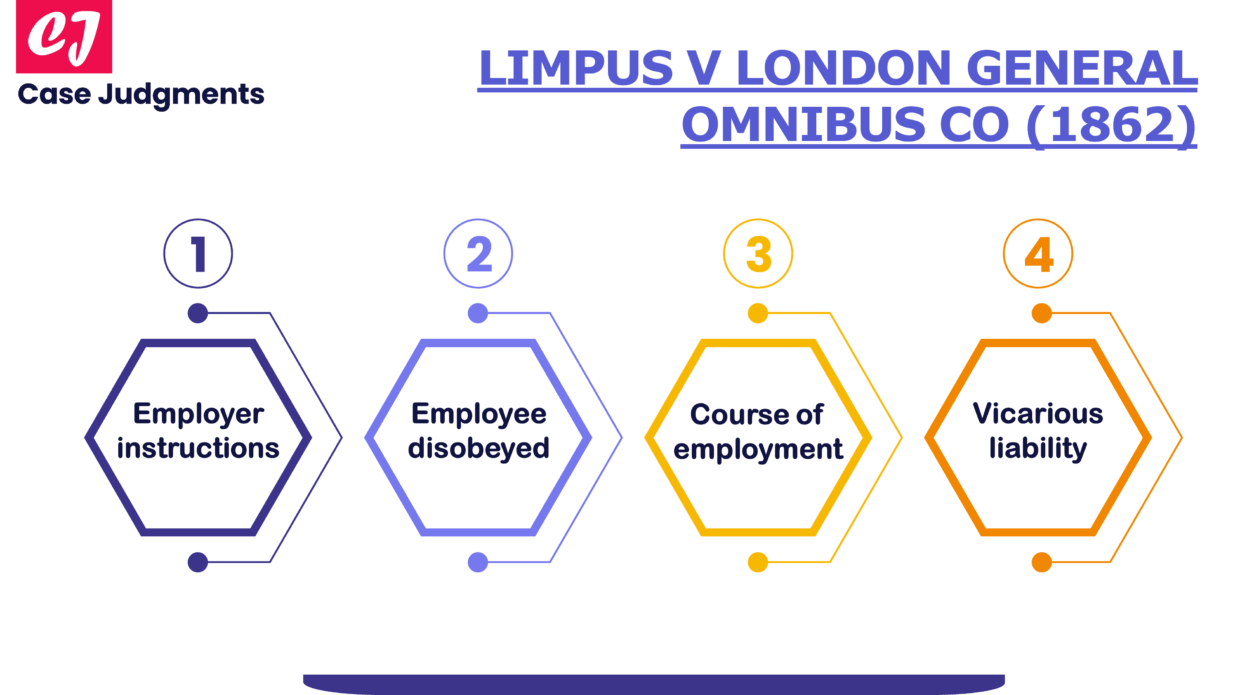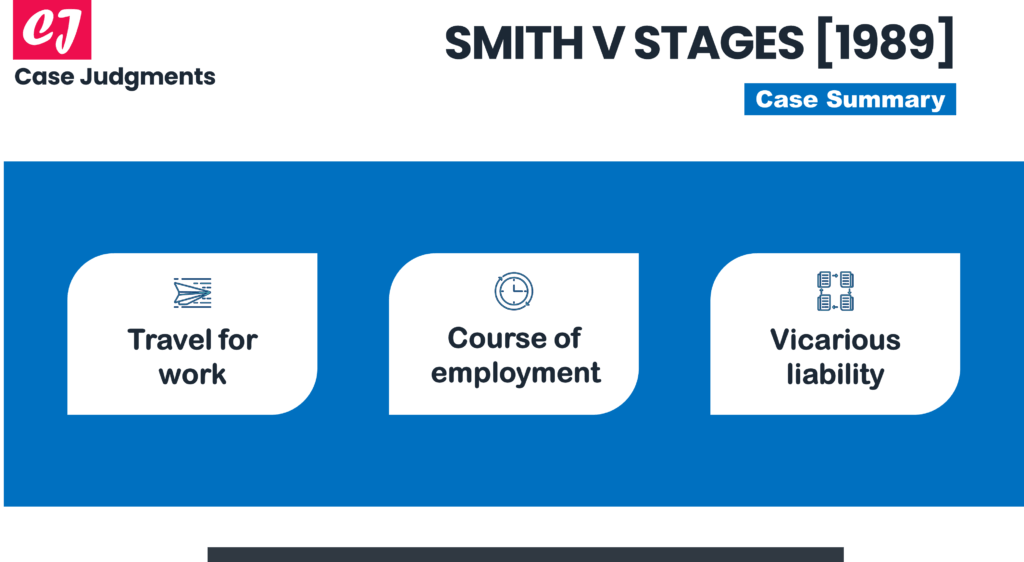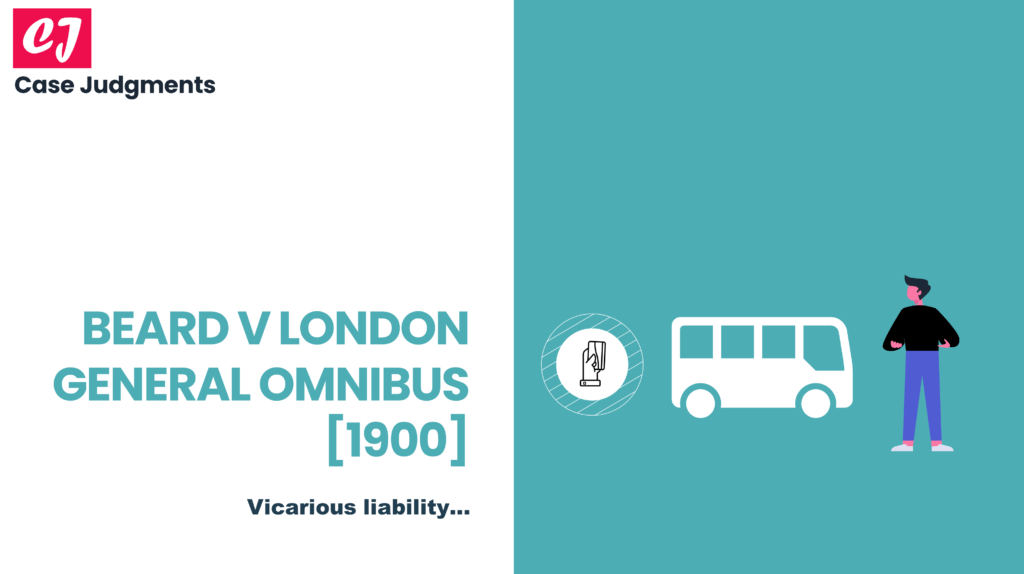
Limpus v London General Omnibus (1862): A Quick Summary
Case name & citation: Limpus v London General Omnibus Co (1862) 1 H. & C. 526; (1862) 158 E.R. 993
Court and jurisdiction: Exchequer, England and Wales
Decided on: 23 June 1862
Area of law: Vicarious liability; Employee acting against orders
What is the case about?
The case of Limpus v London General Omnibus Co deals with the vicarious liability of an employer for the torts of his/her employees. In the given case, the Court had to decide whether the tort was committed within the course of employment in order for the employer to be held liable.
Facts of the case (Limpus v London General Omnibus)
A bus driver was given explicit written instructions not to race with or obstruct other buses. The driver disobeyed the order and while he was racing with another bus, a collision occurred.
An action was brought against the bus company for the reckless and improper conduct of its driver.
The bus company attempted to avoid liability by arguing that it had strictly prohibited its drivers from obstructing the movement of other buses.
Issue
Could the bus company be held liable?
Judgment of the Court in Limpus v London General Omnibus
Employers can be held vicariously liable for the negligent or wrongful acts of their employees when those acts occur in the course of their employment.
Therefore, despite the fact that the driver had disobeyed the order, the Court decided that he was acting within the scope of his employment. The employers were held liable because, at the time of the accident, the driver was nonetheless doing what he was employed to do, i.e., he was acting within the scope of his employment. It was immaterial whether his act was prohibited.
It was believed that the driver was, though in an improper manner, promoting his employer’s passenger service business by seeking to disturb another bus.
Summing up the case
If an employee is performing his or her job but acts contrary to the instructions given, the employer may still be liable.
List of references:
- https://www.ketteringscienceacademy.org/attachments/download.asp?file=941&type=pdf
- https://media.malawilii.org/files/judgments/mwhc/2018/1102/2018-mwhc-1102.pdf
- https://www.cram.com/essay/The-Case-Of-Limpus-V-London-General/PJ4ML4MEMG#google_vignette
- http://www.nadr.co.uk/articles/published/sport/SportLecture007.pdf
You might also like:
More from tort law:

